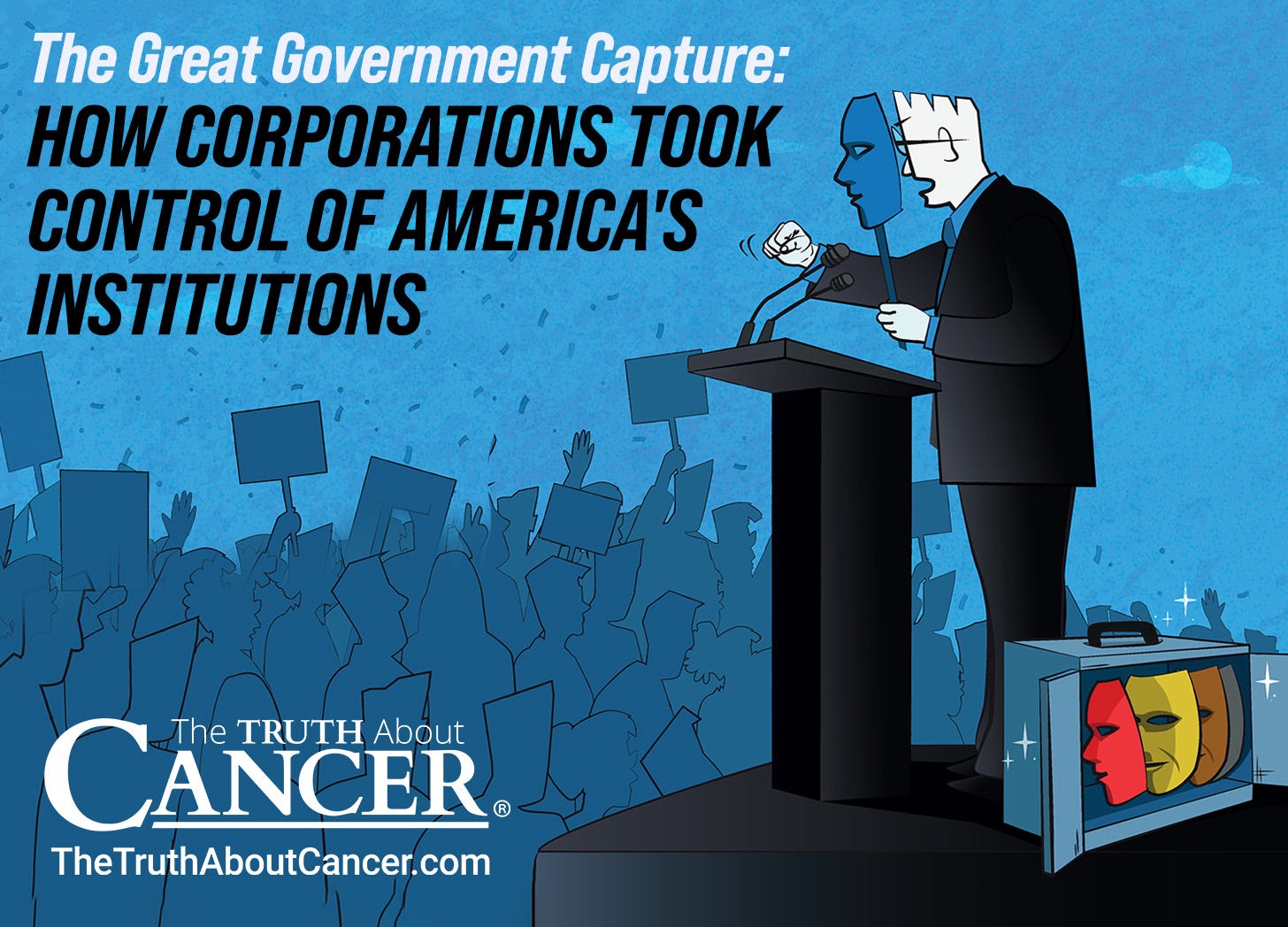The Great Government Capture: How Corporations Took Control of America’s Institutions
It is a sad reality that many of our trusted institutions, such as the Food and Drug Administration (FDA) and the Centers for Disease Control and Prevention (CDC), have been compromised by corporate influence. This article aims to shed light on the extent of corporate control over these agencies and how their decisions, which are supposed to prioritize public health, have been compromised.
1 | The Revolving Door Between the FDA and the Pharmaceutical Industry
The close relationship between the FDA and the pharmaceutical industry is a major cause for concern. A revolving door exists where FDA officials often leave their government positions to take lucrative jobs within the pharmaceutical sector, and vice versa. This creates a conflict of interest, as individuals who were once responsible for regulating the industry now work for the same companies they were meant to oversee.
One notable example is Dr. Julie Gerberding, who served as the director of the CDC from 2002 to 2009. After leaving the agency, she joined Merck, one of the largest pharmaceutical companies in the world, as the president of its vaccine division. Critics argue that such relationships raise questions about the impartiality of decisions made by these agencies and whether they are truly acting in the best interest of public health.
2 | The Opioid Crisis and the Role of the FDA
The opioid crisis, which has devastated countless lives and communities across the United States, can be traced back to the FDA’s approval of OxyContin in 1995. The agency’s decision was influenced by manipulated studies and aggressive marketing tactics employed by Purdue Pharma, the manufacturer of OxyContin.
It has been revealed that Purdue Pharma deliberately misled the FDA and the medical community about the addictive nature of the drug, contributing to the opioid epidemic that has claimed hundreds of thousands of lives. The FDA’s failure to properly scrutinize the drug’s safety and its reliance on information provided by the manufacturer raises serious questions about the agency’s ability to protect public health.
3 | Monsanto’s Influence on Regulatory Agencies
Monsanto, the multinational agrochemical and agricultural biotechnology corporation, has had a long history of influence over regulatory agencies like the FDA and the Environmental Protection Agency (EPA). One of the most controversial products developed by Monsanto is glyphosate, the active ingredient in the herbicide Roundup.
Internal documents and emails reveal that Monsanto has engaged in questionable practices, including ghostwriting scientific studies and manipulating data to downplay the risks associated with glyphosate. The company has also used its financial resources to influence regulatory bodies and suppress negative information about its products.
Despite the mounting evidence suggesting that glyphosate may be carcinogenic, the FDA and the EPA have consistently sided with Monsanto and maintained that the herbicide is safe for use.
4 | The CDC’s Stance on Tobacco and the Influence of the Tobacco Industry
While the dangers of tobacco are now well-established, the CDC was once a staunch defender of the industry. In the 1950s, the agency was adamant that there was no definitive link between smoking and lung cancer, despite mounting evidence to the contrary.
It is now known that the tobacco industry engaged in a decades-long campaign of deception, using advertising, lobbying, and manipulation of scientific research to cast doubt on the dangers of smoking. The industry’s influence over the CDC is just one example of how powerful corporations can sway the decisions of trusted institutions, with devastating consequences for public health.
5 | The Conflict of Interest in Vaccine Development and Regulation
The development and regulation of vaccines, particularly during the COVID-19 pandemic, have also been marred by corporate influence and conflicts of interest. The unprecedented speed of vaccine development and distribution, driven by the need to address the global crisis, has led to concerns about the thoroughness of safety and efficacy evaluations and the potential for conflicts of interest between regulatory bodies and pharmaceutical companies.
Pharmaceutical companies, such as Pfizer and Moderna, have made billions of dollars from the sale of their COVID-19 vaccines. There is a concern that the financial incentives associated with vaccine development could compromise the integrity of the regulatory process. For example, companies might suppress or downplay negative data in order to maintain profitability.
Moreover, the close relationship between the CDC, FDA, and vaccine manufacturers raises questions about the objectivity of these agencies in evaluating the safety and efficacy of new vaccines. The financial ties between government officials and pharmaceutical companies may influence the recommendations and guidelines issued by these agencies, potentially prioritizing profits over public health.
Conclusion
The influence of corporations over trusted institutions like the FDA and CDC is deeply concerning. The revolving door between regulatory bodies and the industries they are meant to regulate creates conflicts of interest that can compromise the integrity of their decisions. Furthermore, the examples discussed in this article demonstrate the extent to which corporate interests can sway the actions of these agencies, with devastating consequences for public health and safety.
In order to restore trust in these institutions and ensure they are acting in the best interest of the public, greater transparency and stricter regulations are needed to limit corporate influence. Citizens must also remain vigilant and informed, holding both corporations and government agencies accountable for their actions. Only then can we hope to have institutions that truly prioritize the health and well-being of the American people over corporate profits.





